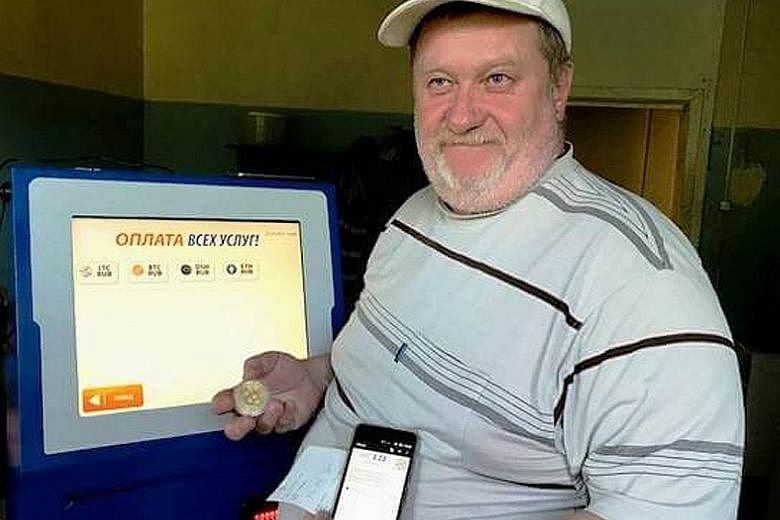RUSSIA • A family farm in Kolionovo, a village on the outskirts of Moscow, has become a role model of the circular economy, thanks to the launch of the first agricultural Initial Coin Offering (ICO) on the Russian market.
ICO is a fundraising system similar to public offerings but based on cryptocurrencies. Behind it is farmer Mikhail Shlyapnikov, 54.
The Russian government plans to allocate 5.2 billion roubles (S$111 million) in soft loans to agro-industrial projects this year. Last year, farmers received 6.5 billion roubles through 8,000 soft loans.
But 80 per cent of these went to big farms and holding groups, which constitute just 2 per cent of all agro producers, leaving most villagers with no other choice but to provide for themselves.
"You either wait for favours from the state or create good life conditions yourself," said Mr Shlyapnikov.
The farmer, who was a businessman and a banker in the 1990s, moved to the village in 2007 after being diagnosed with an inoperable cancer. He owns 25ha of land where he grows seeds and rents 75 ha more to grow crops and potatoes. But his retirement plan turned into the creation of a successful agricultural project instead.
"One day in 2014, I was drinking with my neighbour, complaining about not having enough money. We drunk-dialled a printing house and asked them to print a million kolions," he said.
Kolions were guaranteed by the farm's assets - a bag of potatoes or a goose - and let the farmer sell his crops for half their price inside Kolionovo, trade with suppliers, and pay his workers.
But a year later, a criminal case was brought against him for issuing his own paper currency. The court concluded that his actions undermined the government's financial system, and the kolions were banned.
Mr Shlyapnikov turned to the blockchain market to find investors for his farm. In 2016, he launched the first ICO fundraiser, collecting the equivalent of about 800,000 roubles on Emercoin. Investors got a delivery of the farm's products and profits went into developing the farm.
In April last year, the farmer released the kolion token on the Waves platform, an open-source blockchain platform that allows users to launch their own custom cryptocurrency tokens. In one month, he collected 401 bitcoins - 31.6 million roubles - from 103 investors. By February, the sum had exceeded 300 million roubles.
The ICO's purpose was not just survival, but to create an alternative way to deal with seasonal cash scarcity. Mr Shlyapnikov also uses the crypto tokens while dealing with suppliers and consumers, thus involving neighbouring farms in his local economy. In addition to regular dividends, kolion holders receive a discount for paying with the cryptocurrency.
Kolions are traded on the stock exchange but cannot be "mined" like bitcoins. Instead, the farmer invites those willing to earn some kolions to the farm, telling them to "get a shovel and clean up after the pigs".

